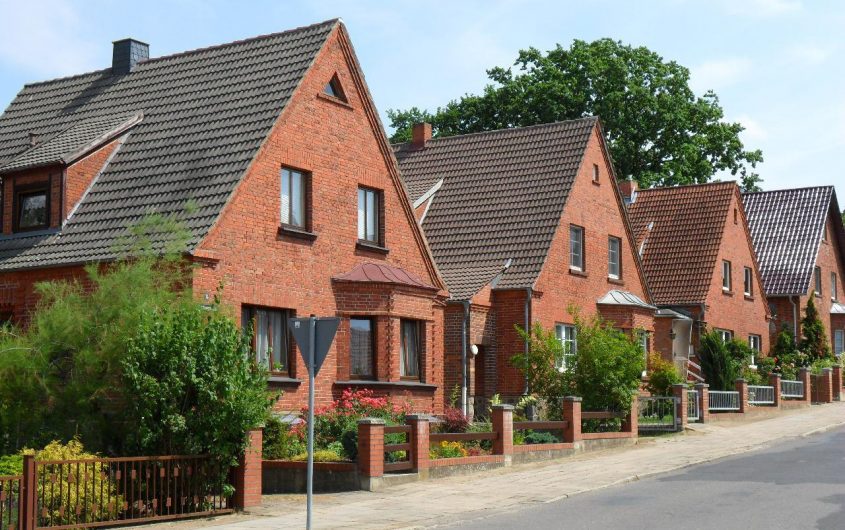
Thomas Kohler via Flickr
Questioning the Single-Family Home

Simon Schütz
German Association of the Automotive Industry (VDA)
Simon Schütz works as the head of communication for the German Association of the Automotive Industry (VDA) in Berlin. Before that, he was a Responsible Editor at BILD, covering U.S. politics as well as domestic politics in Germany. In addition, he freelanced for the American National Public Radio (NPR), where he wrote mostly about current developments in Germany.
Simon graduated from Freie Universität in Berlin, with an MA in strategic political communication. He also studied at George Washington University in Washington, DC, where he primarily focused on public diplomacy and campaigning during elections and in Bordeaux, France.
The Greens struggle once again with the image as a party of prohibition
There it is again, the old debate about the Greens as a party of prohibition. Ironically, once again at the start of another super election year, after a constant second place in the national polls, a new “banning debate” threatens the Greens’ election campaign – and above all – the election result they hope for.
What happened? Anton Hofreiter, parliamentary party leader of the Greens, caused a big media fuss with an interview in the German magazine Der Spiegel. He was asked about a decision by a Hamburg district office that had not included single-family houses in the development plans – and justified that decision with the “dramatic housing shortage” in the area. The district decided to create living space for many instead of a few, argued Hofreiter. Moreover, he warned of the ecological consequences of owning a single-family-home: Regarding the current housing shortage in German cities, the new construction of single-family houses in the suburbs would consume a lot of space, building material, and energy. They would cause urban sprawl and more traffic. Even though he emphasized that his party does “not want to ban one’s own four walls,” his interview caused a big stir and criticism from various parties. The accusation: The Greens want to exert political pressure on those who want to build single-family houses – or even forbid those plans.
Franziska Brantner, member of the German Bundestag for the Greens, is not impressed by that accusation: “It’s an old image; they will always try to bring it back. But if that is the only thing they can throw at us, we will it bring home” (referring to the 2021 Bundestag election).
Nevertheless, the Greens now have to fight the image of being a party of prohibition – once again. In the run-up to the German federal election in 2013, the controversy about a Veggie Day (introducing a veggie day in public canteens to reduce meat consumption) sparked a lively public debate – and polls showed it cost the Greens a significant percentage of voters. Other issues, such as a speed limit, a driving ban, or calls to avoid air travel, are other past examples that pushed the image of the Greens as a prohibition party.
Jürgen Falter, political scientist at the Johannes Gutenberg University in Mainz, analyzed the Greens’ dilemma: “For a while, it seemed as if the Greens could shake off the image of the prohibition party. But there are always relapses since a number of green demands cannot be realized through mere persuasion, but only through state dirigisme, e.g. bans. This also includes a ban on the internal combustion engine and the fact that the transport policy is not open to technology.”
He does not believe that this debate will hurt the Greens as much as the veggie day: “This shouldn’t be too tragic, but one or the other marginal voter, the couple with children who are planning to buy or build their own home in the country, could be unsettled. And should the other parties succeed in taking advantage of the issue, it could actually cost the Greens one or two percent of the vote.”
Even though this does not sound very dramatic, especially in times of campaigning, a top politician such as Hofreiter should have chosen his words more carefully – his statement gave many German people the impression that their preferred way of life, owning a single-family home, could be immoral. This communication failure could have been avoided.
Nevertheless, this debate gives us a glimpse of possible social clashes if a widespread ecological turnaround is implemented. This specific debate about housing is after all a dispute about justice and maintaining social peace when it can no longer be bought at the expense of the environment. The point Hofreiter made is not even that controversial – many experts argue that single-family houses are less environmentally friendly than multi-family structures.
In the end, the current debate might cost the Greens a few votes – and bring back the image problem to a certain degree – but the real interesting takeaways are on a different level: How honest do we want to be when it comes to consistent climate politics? And how can we solve the upcoming conflicts without causing social clashes? Those answers still need to be found.
Housing Shortage in Germany
Affordable housing is still in short supply in German cities. Even though the government promised 2018 to build 1,5 million new apartments by 2021, the situation is still alarming. Germany is currently lacking around 670,000 apartments nationwide, most of them in the social housing sector. According to the Alliance for Social Housing some 43,000 social housing units disappear from the market every year. The average living space per tenant major German cities is falling. At the same time the rent in major cities in Germany has risen disproportionately between 2009 and 2019 — in Berlin by 104 percent (according to an analysis by the real estate portal Immowelt). In no other country within the EU so few people live in their own property as in Germany. Currently too little is built within cities, while experts claim too much is being built in rural districts and villages.
In interviews Simon Schütz spoke with political scientist Jürgen Falter on February 18, 2021, and with Franziska Brantner, member of the German Bundestag, on the February 23, 2021.








